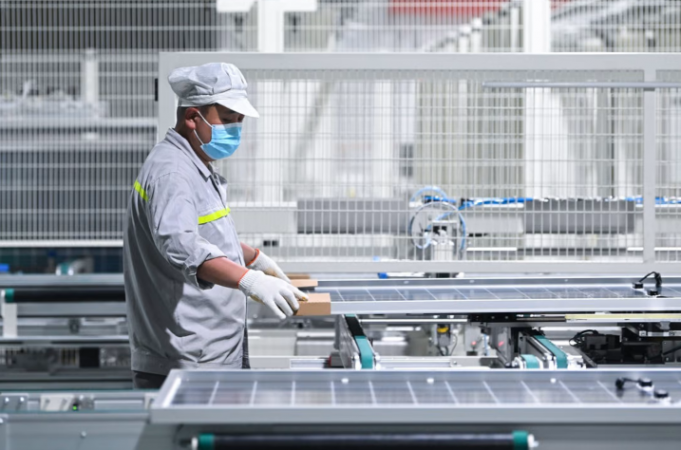
BEIJING: As China's economy struggles to recover, manufacturers in the country's export hub are risking the fate of thousands of rural migrant workers or shutting down.
Beijing's stringent COVID controls, market turmoil from the Ukraine war, and sluggish global demand are being felt in Dongguan, China's southern manufacturing hub, which has seen a spate of factory closures in recent months.
Dongguan Koppo Electronic, which makes Bluetooth headsets for international brands, went out of business in July after orders "falling off the cliff". According to industry insiders, smaller clothing and footwear manufacturers have shut down for similar reasons.
After 36 years of operation, Alco, one of the region's most successful manufacturers, has been forced to close its business and factory.
This Hong Kong-based company once employed thousands of people, but its premises are now deserted.
Ahead of the shutdown, the company said the pandemic has severely affected its export-oriented business, resulting in significant losses and making operations untenable.
A note posted on a wall at the entrance to the factory where workers pumped electronics goods for export around the world highlighted the factory's precarious fate.
The message, which served as a kind of plea to the local government, one of its main creditors, requested that dozens of workers who were unable to find new jobs be allowed to live in staff dormitories.
"Look how big and beautiful the factory is," a security guard said on condition of anonymity. "It even has its own flyover connecting both sides of the road to factories, restaurants, hostels and stadiums."
It's not clear whether the factory will find a new tenant, but any company considering it will face a tough business environment.
In August, manufacturers cut jobs for the fifth month in a row to cut costs, fueling concerns about a weak labor market, which is taking a toll on consumption. They also reduced material purchases as a result of fewer new orders.
China's army of 28 crore migrant workers is feeling cold.
Cai Bao, 30, from Hubei province, said workers were less willing to spend or move because companies were halting recruitment and the lockdown made travel dangerous.
"Even if income is low at the beginning of the year, and many factories are on holiday and only offering minimum wage, workers are hesitant to risk leaving," Cai said. Told.
Fewer jobs and lower wages in manufacturing could jeopardize China's long-term strategy of shifting to domestic consumption to spur economic growth.
Cai has spent the past few years working for a chemical company in the United States. He earns around 8,000 yuan (US$1,139) per month, but the job is tough.
He must wear protective clothing and a gas mask every day when working with hazardous substances at high temperatures.
Despite the danger, work has enabled him to buy a car, and some of his coworkers have bought homes in smaller towns.
The factory reduced daytime shifts in June due to declining orders. Due to low electricity bill, its operation started at night itself.
"We still have about 70 employees, but our income has almost halved," Cai explained. "There are rumors that the factory will leave Guangdong. Some believe it will move to an inner province, while others believe it will move to Southeast Asia."
Not only factories in Dongguan are suffering; Labor agencies, stores and restaurants are also closing.
"The factories preferred temporary workers or sent laborers, who came from agencies and had no contract with the factory." However, such jobs are now being frozen," said Wang Ying, who owns a retail shop in Dongguan's Liaobu Township.
"In front of my shop was a large factory with over 1,000 workers producing fishing gear for export." It closed earlier this year, and since then three smaller factories have gone, but they employ less than 300 people."
Vladimir Putin grins as he cautions Ukraine that the conflict could become more serious
Social media platforms are at the forefront of the China-West narrative battle
China may increase its arsenal as a result of a US general's remarks on nuclear deterrence